Last Saturday, I was, in Jerez de la Frontera (Cádiz), and walking on the centre, I found a place that was called "Tabanco the Passage"; I went into and asked the owner if he let me take some pictures, she said yes; when I asked what "Tabanco" meant, he told me that it was a "Tavern", but only in Jerez, not in the rest of Spain. So, while I did the photographs, the owner told me that, formerly, there were selling wine and tobacco, --when tobacco entered in Spain--, and, then, only as an office that bought wine. But, at the Tabancos, also there were performances by Flamenco.
Indeed, Tabanco was a establishment, which emerged, in Jerez, and that mixed the social concept of tavern and the commercial vocation of "wines shop", mainly Jerez and its distillates. In these establishments, wine was sold in bulk, moreover you could taste wine and other foods, in the same property. Nowadays, they still offer you some “tapas”, with wine.
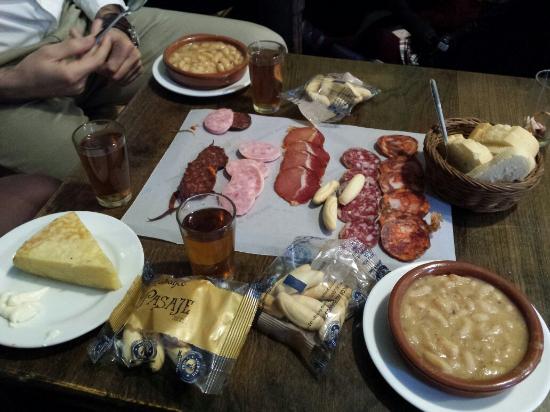
Wine and tapas in the Tabanco "The Passage"
The name "Tabanco" emerged, in the seventeenth century, and it came from the fusion of two words: "government shop" (sale controlled by the state) and "tobacco" (a new product reached that century) .Other theories suggest that the designation of “tabanco” born in the early twentieth century, when it was contained in documents, replacing the word tavern. Although Cervantes described, in a poem of his book "Travel to the Parnassus", mentioning the Gitanilla:
Nunca se inclina, o sirve a la canalla
trobadora , maligna y trafalmeja ,
Que en lo que mas ignora , menos calla.
Hay otra falsa , ansiosa , torpe y vieja ,
Amiga de sonaja y morteruelo,
Que ni tabanco , ni taberna deja
The poem in English:
Never lean or serves the scoundrel
troubadour, malignant and trafalmeja,
That what most ignorant, less silent.
There is another false, anxious, clumsy
and old,
Friend of rattle and Morteruelo (it is a
typical stew from Cuenca, that is cooked
with pork liver and sometimes with
chiken, ham and bread crumbs),
That neither tabanco, or tavern leaves.
They were meeting places, belonging to the circuit where wine was served, it was sung flamenco, flamenco singers were promoted. The image of a Tabanco is composed of a desk, generally of wood, staffed by one or several people, showing old oak barrels, in which the drink is preserved.
Although the alarm for possible disappearance occurred in 2001, they have now proliferated new tabancos, combining ancient tradition with modernity, getting to create a specific route.
Well, the Tabanco "The Passage" is in the street Santa Maria, number 8; It is near the Villamarta Theatre --which I saw, at the beginning of the morning, before finding the Tabanco El Pasaje--. Next to the theater, I had breakfast, on the terrace of a coffee shop, because the weather was good.
I am going to show you a plan of an area of the city:
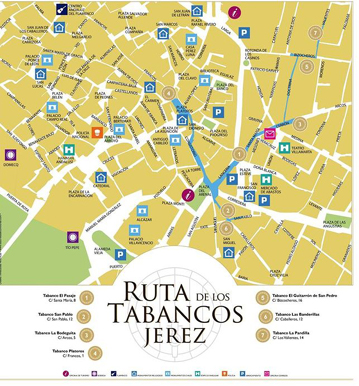
Look at the Tabanco The Passage on the number 1, to the right side of the plan.
It is said the the Tabanco El Pasaje is the oldest tabanco in Jerez, because it was open, by its first owner, Mr. José González Navarro, in 1925 – December 16 --a year of memory lavish, as the kings of Spain, Alfonso XIII and Victoria Eugenia of Battenberg, came to crown the Virgin of El Carmen, in the Park González Hontoria; having cause of that reason, to such diverse cultural events, opera and bullfight--.
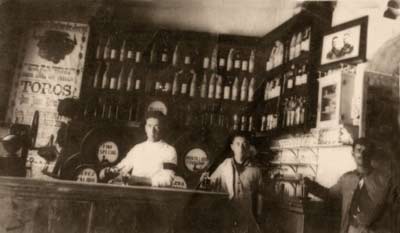
The Tabanco "The Passage" in 1925.
But "The Passage" had been, before, in the early twentieth century, greengrocer´s and then headquarters of a group, where the waiters of Jerez got together, going in the early twenties to become the tabanco "La Fortuna", by Mr. Domingo Jimenez, until to change its name, in 1925, adopting the current of "The Passage", because the shop has two entrances to it: the main one, along the Santa Maria street number 8 and the back, along the Mesones 7 street.
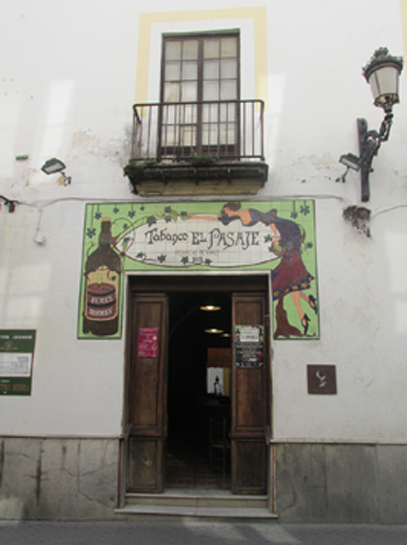
Currently, the new direction of this house has rescued a part of the accessory that remained boarded up, since immemorial time, recovering hewn stone of it, and giving this typical tabanco a more comfortable appearance, being able to install some watchmen, for its esteemed clientele, in that space.
I went into the Tabanco and I asked the owner for permission to make some pictures inside. Then, I could make –although there was a low light— some pictures like these:
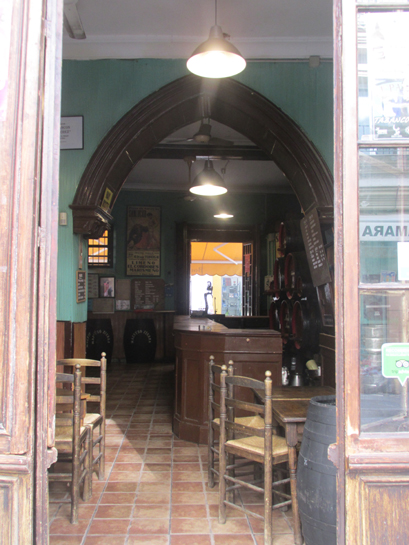
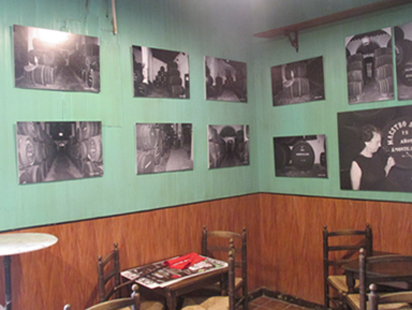
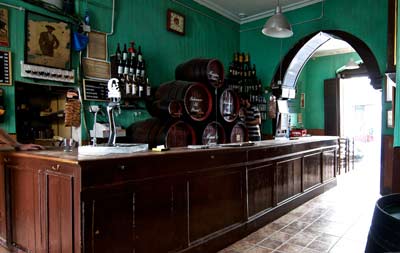
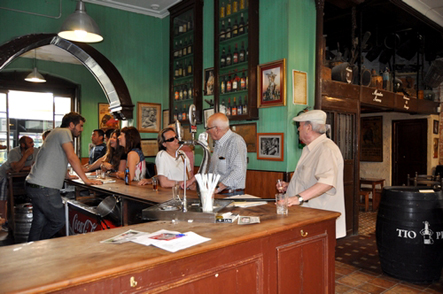
The different types of wines, that traditionally are sold, in this old and popular tabanco, kept in small barrels, from which it is extracted directly to public view, belong to the accredited winemaking firm Maestro Sierra, with unsurpassable quality, that it distinguishes its different products.
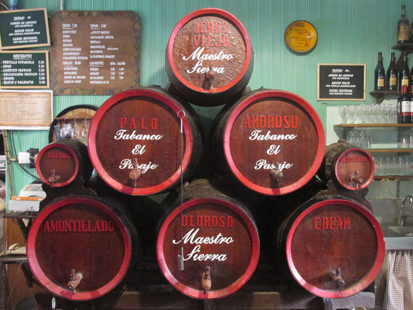
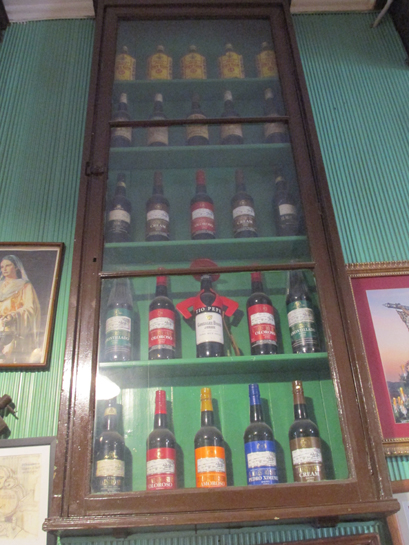
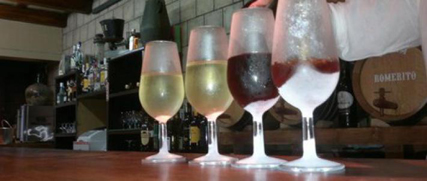
"Catavinos" (wine taster´s glasses) with differents types of wine of Maestro Sierra
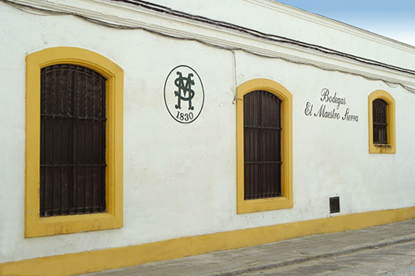
The Winery Maestro Sierra
Going to back of the shop, I stayed looking at a picture of a young butfamous “Cantaor” (Singer of Flamenco), from the beginning of the twenty century and named Manuel Valencia Peña, but named “Diamante negro” (“Black Diamond”). The tabanco´s owner told me that Manuel was a very good singer of Spanish Copla.
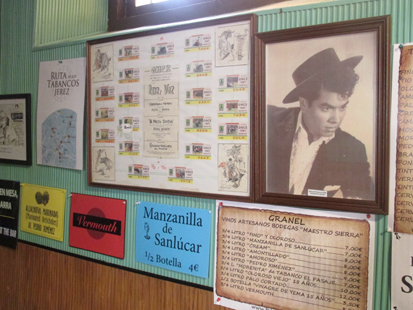
The "Diamante negro" on the right side of the picture
Looking to the left, I could see the corner of the tabanco, where they offer a spectacle of Flamenco, every night, at 9 and a half.
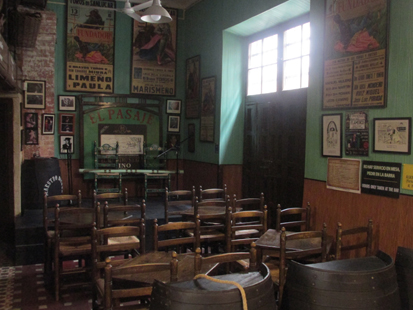
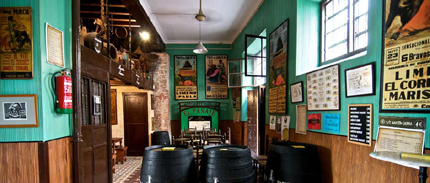
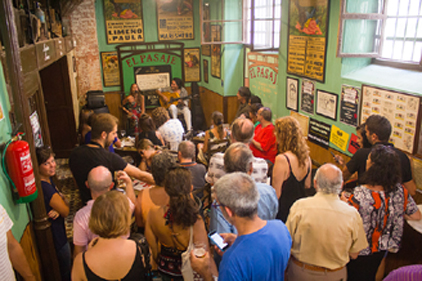
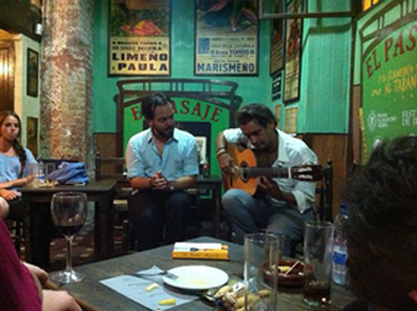
Jaime Candié and Ramón Trujillo
Going out of the tabanco, in front of it, I could see a very nice shop, “TAMARA”, specialized in clothes and accessories for Flamenco.

Then, María (my wife), our children and I went, to the Arenal Square, in order to take our car, which was in an underground car park. But, before it, I made some pictures to the square and to the main market –where I was impressed with so many stalls of fish……--.
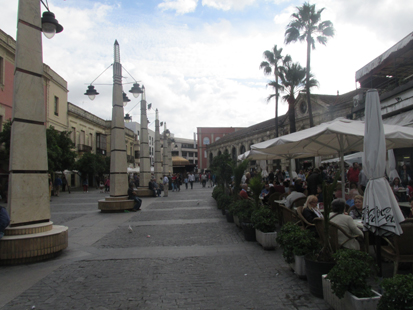
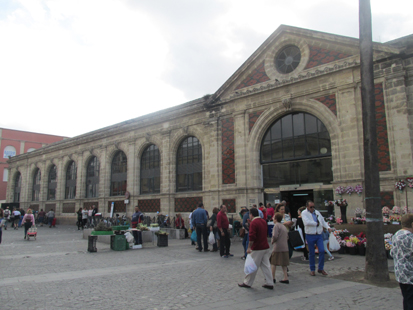
The Market
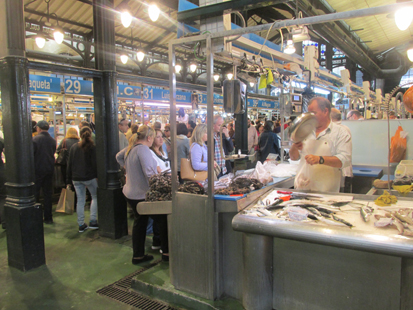
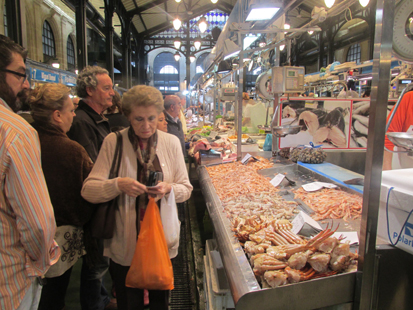
Well, I hope that you have liked to read my little experience, in the centre of Jerez, and I hope that you can enjoy a similar tour yourself anyday.
Until my next post, kind regards,
Luis.
Sponsored by Costaluz Lawyers.
Please click below:
